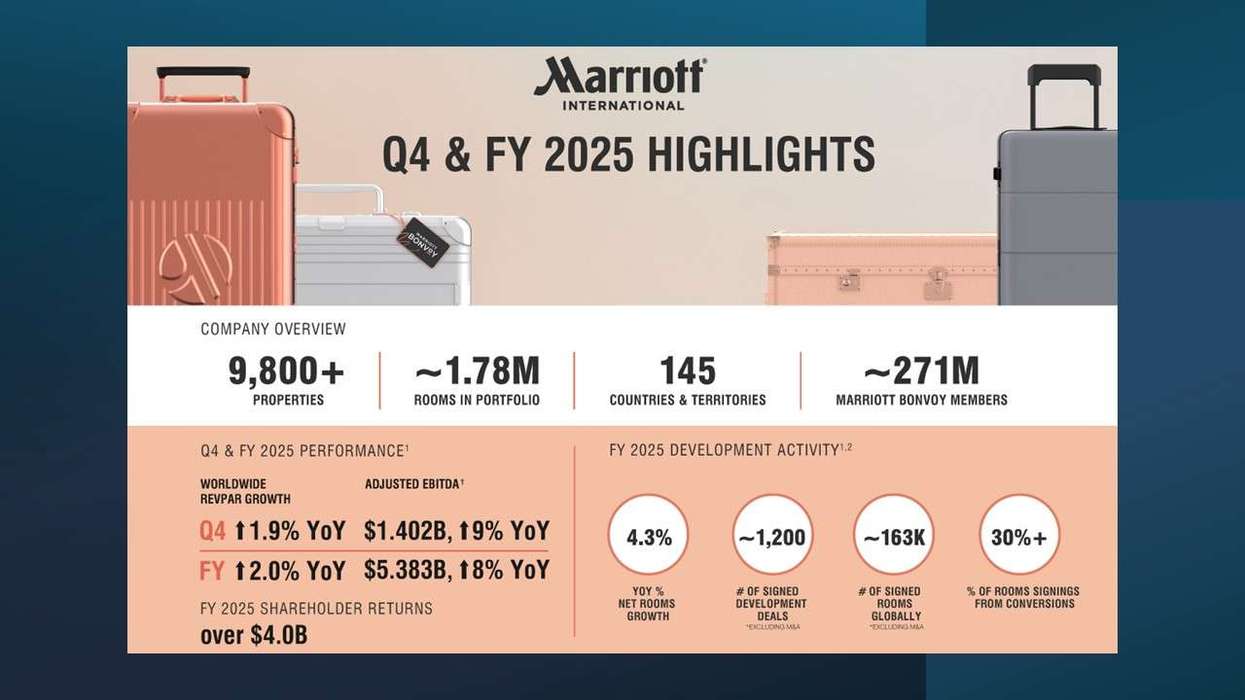Bob Gilbert HSMAI retirement
Bob Gilbert, president and CEO of the Hospitality Sales and Marketing Association International, retired after 30 years in executive leadership roles. Juli Jones, HSMAI senior vice president, will serve as interim managing director while the association, aided by SearchWide Global and HSMAI’s management company MCI, searches for the next president and CEO, HSMAI said in a statement.
Gilbert accelerated his retirement due to a serious health issue.
Kristin Miodonski, MCI associate vice president and HSMAI content director, will serve as interim managing director for the HSMAI Foundation, the statement said.
“It is with the utmost respect that we announce the retirement of Bob Gilbert from his role of president and CEO of HSMAI,” said Andrew Rubinacci, HSMAI Americas chair and chief advisory officer at FLYR Hospitality. “Bob has been a mentor and friend to so many of us in the industry and has taken the association to new heights over the course of his incredible 30-year tenure, expanding HSMAI across the globe. The association will benefit from his leadership for many years to come.”
Gilbert expressed gratitude for his years of service at the association.
“I want to express my appreciation for my years at the association, the deep partnerships built with so many of you and the trust you placed in me to help guide the organization to truly impact sales, marketing and revenue optimization in the hospitality industry,” Gilbert said.
“The hospitality field has always proven its vitality and resilience, evolving with the world’s changes no matter how quickly those changes have happened. We’ve adapted through events like 9/11 and the pandemic and emerged stronger than ever before,” he said.
Spearheaded growth
Gilbert unified HSMAI's global regions under HSMAI Global in 2002 and introduced organizational membership in 2018, HSMAI said. During his term, HSMAI launched new chapters in the Americas, including Brazil and Puerto Rico and established formal regions in Europe, Asia-Pacific in 2003, the Middle East in 2008 and Latin America in 2023.
He led the creation and expansion of HSMAI’s Strategy Conferences, forming special interest groups for sales, marketing and revenue management professionals to learn and network, the statement said. Gilbert introduced revenue management in 2003 with the HSMAI Revenue Management Strategy Conference, which evolved to combine sales, marketing and revenue disciplines into what is now known as "commercial" by 2024.
“In the last year alone, we unveiled HSMAI’s first ever Commercial Strategy Conference; continued the coalition building with other industry organizations like AHLA, HFTP, HEDNA and more; and launched HSMAI’s Century Campaign to celebrate HSMAI’s 100-year anniversary in 2027 and ensure it is here for members and the industry for 100 more,” Gilbert said. “I owe a debt of gratitude to all of the industry leaders who have served as volunteer leaders for the organization, and a staff of dedicated professionals who have implemented their vision.”
During his tenure, HSMAI also introduced the Certified Revenue Management Executive, Certified Hospitality Digital Marketer and Certified Hotel Business Acumen. In June, HSMAI Global launched the new Certified Hotel Sales Leader certification, focusing on sales and commercial principles, team leadership, commercial acumen and effective sales practices to boost revenue.
He focused the HSMAI Foundation on talent attraction, growth, and retention. Last year, Gilbert launched the Century Campaign to raise awareness of the foundation's origins, impact, and future plans. HSMAI said donations will support the next generation, enhance membership benefits, and create opportunities for future innovators.
Last June, Kalibri Labs collaborated with industry associations like AAHOA, HFTP, and HSMAI to launch a Commercial Strategy Certification Program that offers hotel operators tools to navigate costs and enhance profitability amid digital disruption.






